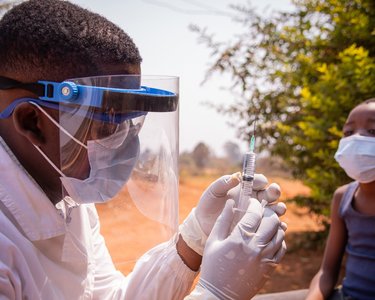The Impact of Emergency Vaccination Campaigns
Emergency vaccination efforts have played a crucial role in reducing mortality rates during deadly disease outbreaks. A recent global study highlights that these initiatives have led to a nearly 60% decrease in death rates over the past 25 years. This research, conducted by Australia’s Burnet Institute and supported by the Gavi vaccine alliance, marks the first detailed analysis of how emergency immunisation contributes to public and global health security.
The study focused on 210 outbreaks of five major diseases—cholera, Ebola, measles, meningitis, and yellow fever—in 49 low-income countries between 2000 and 2023. The findings reveal that rapid vaccine roll-outs not only save lives but also significantly reduce the spread of infections. For instance, deaths from yellow fever dropped by an impressive 99%, while Ebola fatalities were reduced by 76% following vaccination campaigns.
Tolong support kita ya,
Cukup klik ini aja: https://indonesiacrowd.com/support-bonus/
Beyond saving lives, the report emphasizes the economic benefits of emergency vaccination efforts. Researchers estimate that these campaigns generated approximately $32 billion in value by preventing deaths and reducing years lost due to disability. However, experts believe this figure may not fully capture the financial impact, as it does not account for the costs associated with outbreak responses or economic losses caused by social disruption.
The 2014 Ebola outbreak in West Africa serves as a stark reminder of the damage preventable outbreaks can cause. At the time, vaccines were not yet available, leading to global panic and costing West African countries over $53 billion. The new findings reinforce the idea that vaccines are not just essential health tools but also critical for maintaining economic and social stability.
Despite these positive outcomes, the study comes at a time when vaccine-preventable diseases are making a troubling resurgence. The World Health Organisation has warned of increasing outbreaks driven by misinformation and reduced international aid. Gavi, which vaccinates more than half of the world’s children, is currently seeking additional funding as it faces declining support, particularly after Washington announced plans to end its financial backing.
Gavi chief Sania Nishtar highlighted the significance of the study, emphasizing how vaccines can save lives and reduce long-term damage. “This data clearly shows that vaccines are among the most cost-effective tools we have to combat global health threats,” she stated in a public statement.
Key Findings from the Study
- Reduction in Mortality: Emergency vaccination campaigns have led to a significant decline in death rates, with some diseases experiencing near-complete elimination.
- Economic Benefits: Preventing deaths and disabilities through vaccination has generated substantial economic value, estimated at around $32 billion.
- Global Health Security: Rapid vaccine roll-outs contribute to both public health and global stability, especially in regions vulnerable to outbreaks.
- Challenges Ahead: Rising outbreaks due to misinformation and reduced funding pose challenges to maintaining progress in global vaccination efforts.
The Role of International Support
International collaboration and funding are essential for sustaining and expanding vaccination programs. As countries face economic and political shifts, ensuring continued support for global health initiatives becomes increasingly important. Gavi’s call for new funding underscores the need for sustained investment in vaccine distribution and education to prevent future outbreaks.
Conclusion
The findings of this study highlight the profound impact of emergency vaccination efforts in saving lives and protecting communities. By demonstrating the effectiveness of vaccines in reducing both health and economic burdens, the research reinforces the importance of investing in global immunisation programs. As the world continues to face emerging health threats, the lessons learned from these campaigns will be vital in shaping future public health strategies.







